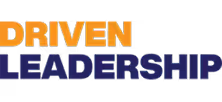Conflict Resolution Training in Anaheim, CA


Leadership Training Conflict Resolution Training in Anaheim, CA
Conflict is inevitable in high-energy workplaces — especially in Anaheim, where hospitality, entertainment, and athletics create fast-paced, people-first environments. Our Leadership Training Conflict Resolution Training in Anaheim, CA is designed for managers and team leaders who need practical, repeatable ways to prevent escalation, restore relationships, and keep teams productive. This page explains the frameworks, tools, workshop formats, role-play exercises, expected outcomes, and follow-up support that make conflict resolution training effective for Anaheim organizations.
Why conflict resolution matters in Anaheim workplaces
Anaheim organizations face unique pressures: seasonal tourism surges, high customer service expectations at major attractions, and tight coordination between operations, sales, and event teams. These conditions increase friction over scheduling, resource allocation, and customer incidents. Left unaddressed, conflicts reduce morale, increase turnover, and slow response times during peak periods. Effective conflict resolution training equips leaders to manage disputes quickly and fairly, maintaining guest experience and team cohesion.
Common conflict types we address
- Frontline disputes: customer service incidents, guest complaints, and staff disagreements over protocol.
- Cross-functional friction: misaligned priorities between operations, sales, facilities, and marketing.
- Performance and accountability conflicts: unclear expectations, feedback avoidance, and escalation to HR.
- Team dynamics in high-pressure settings: stress-based reactions, competition for shifts, or role overlap.
- Athletic and coaching teams: role clarity, competitive tensions, and post-game debrief conflicts.
Core frameworks and tools taught
Our curriculum blends proven frameworks with hands-on tools leaders can use immediately.
- Thomas-Kilmann Conflict Mode Instrument (TKI): Understand individual conflict styles (competing, avoiding, accommodating, collaborating, compromising) and how to apply them situationally.
- Interest-based relational approach: Move from positions to underlying interests to generate mutually acceptable solutions while preserving relationships.
- Mediation fundamentals: Structured steps for impartial facilitation, including agenda setting, reframing, and negotiated agreements.
- Communication tools: Active listening, reflective paraphrasing, calibrated questions, and I-statements to reduce defensiveness.
- Feedback models: Situation-Behavior-Impact (SBI) and brief coaching scripts for performance conversations.
- De-escalation and safety protocols: Techniques for calming high-stress encounters and protecting staff and guests.
- Decision rules and escalation ladders: Clear boundaries for when to resolve locally and when to involve HR or senior leadership.
Workshop formats built for Anaheim teams
Training can be delivered in formats that match operational realities in Anaheim, including high seasonal demand and diverse shift schedules.
- Half-day intensive: Focused skills for supervisors who need immediate tools for high-volume frontline environments.
- Full-day experiential workshop: Deep dive into TKI, mediation practice, and team norms with multiple role-plays.
- Multi-day cohort programs: For leadership teams aiming to shift culture and embed conflict pathways across departments.
- Hybrid and virtual options: Short modules delivered online combined with in-person labs for dispersed teams.
- Train-the-trainer: Equip internal HR or learning teams to deliver ongoing conflict resolution coaching.
- Executive labs: Small-group simulations for senior leaders handling union issues, high-stakes negotiations, or community relations.
Role-play exercises and experiential learning
Hands-on learning is central to making conflict resolution durable and actionable.
- Scenario-based simulations: Realistic vignettes drawn from Anaheim contexts — a staffing dispute during a sold-out event, guest altercations, or cross-department schedule clashes.
- Fishbowl exercises: Observed mediation sessions where learners rotate roles as mediator, party, and observer to practice skills and receive structured feedback.
- Behavioral rehearsal with playback: Video-recorded role-plays followed by facilitator-led coaching to refine tone, language, and nonverbal cues.
- Rapid response drills: Short, timed exercises to practice de-escalation and containment in customer-facing incidents.
- Reflective practice and action planning: Individual commitments, peer coaching pairs, and short-term experiments to apply new approaches on the job.
Expected outcomes and measurable impact
Training is designed to translate into measurable improvements that matter to Anaheim employers.
- Faster resolution: Shorter time from conflict emergence to resolution, reducing disruption during peak operations.
- Improved collaboration: Clearer norms and communication practices that increase cross-functional coordination.
- Higher employee retention: Leaders who resolve conflict respectfully reduce turnover among frontline and seasonal staff.
- Enhanced guest experience: De-escalation and mediation skills preserve service quality during stressful incidents.
- Stronger psychological safety: Teams report greater willingness to raise issues early, preventing small problems from escalating.
- Quantifiable metrics: Post-training tracking of incident resolution time, employee engagement survey lifts, reduction in formal grievances, and manager confidence scores.
Follow-up support to sustain change
Learning is reinforced through practical follow-up that ensures new behaviors stick.
- Post-workshop coaching: One-on-one or small-group coaching sessions to troubleshoot real conflicts and reinforce skill use.
- Microlearning modules: Short, focused refresher lessons for busy leaders to revisit core skills between shifts.
- Pulse surveys and progress checks: Regular measurements to monitor conflict frequency, resolution quality, and cultural shifts.
- Leadership accountability tools: Templates for agreements, escalation ladders, and meeting norms to institutionalize new practices.
- Refresher labs: Quarterly or annual refreshers tied to seasonal peaks and team changes common in Anaheim operations.
Practical advice for leaders in Anaheim
- Prioritize early intervention: address small issues before they become public incidents during busy events.
- Standardize escalation: clear, simple rules help frontline staff know when and how to escalate.
- Use TKI awareness: tailor your approach—sometimes assertive action is needed; sometimes collaboration is the right path.
- Practice role-plays that mirror local realities: hospitality scripts, event-day stressors, and team debrief scenarios.
- Measure and iterate: link training outcomes to engagement and operational metrics to show impact.
Conflict resolution is not a one-time fix; it is a leadership capability. In Anaheim’s service-driven and event-focused economy, investing in practical, experiential conflict resolution training gives teams the resilience and clarity they need to perform under pressure, protect guest experience, and build a more collaborative workplace.

